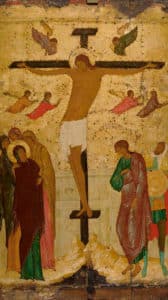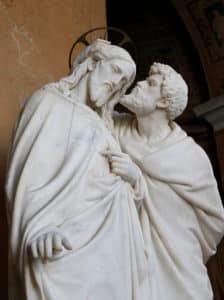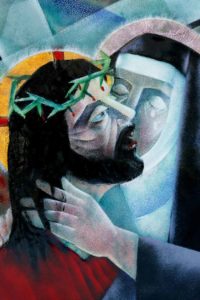
What does Easter mean for you? For many, in an increasingly materialistic and pleasure driven society it’s all about hot cross buns, chocolate Easter eggs and an extended weekend with family and friends.
For Christians, on the other hand, Easter involves the betrayal, death and resurrection of Christ and the knowledge that while this world might be a vale of tears if one embraces the word of God there will be eternal deliverance and salvation.
Easter is a time of contemplation, spiritual renewal and reaffirming the belief that all is not lost no matter how difficult and painful life is. In suffering and pain there is the possibility of redemption and in death there is rebirth.
The new secular Easter
Notwithstanding its religious significance there is no denying that Easter is now very much a secular occasion and there is less and less recognition that for Christians it is one of the most significant and holy events of the liturgical year.

For many adults the most important thing about Easter is time off work and for many children it is the expectation of finding the most chocolate Easter eggs hidden around the house and garden.
Increasingly, our society, as detailed by the Italian philosopher and academic Augusto Del Noce in The Crisis of Modernity, is one where religion no longer resonates in people’s lives as it once did and where the parables and moral lessons of the New Testament are largely forgotten or ignored.
Fewer and fewer Australians now understand what the Good Samaritan refers to, the significance of the parable of the lost son or why it is important to turn the other cheek. Worse still many young people lack a strong moral and ethical compass and fail to distinguish between good and evil.
The rise of hedonism
Undermining religion is the rise of a hedonistic society where instant gratification and sensual pleasures dominate our way of life. Voyeuristic shows like Marriage at First Sight celebrate narcissism, betrayal and relationships based on self-interest and a lack of long term commitment and willingness to compromise.
Religion has also been weakened by science and the belief that the only things that are true are those that can be physically proven; the Marxist belief that religion is the opiate of the masses and a postmodern philosophy that argues there are no absolutes as everything is subjective and relative.
Unscrambling the real mess of Easter
For years now in our schools and universities students have been taught that there is nothing inherently beneficial or worthwhile about knowledge or education for its own sake. Based on the rise of neo-Marxist critical theory the argument is that knowledge is a social construct employed by the elites to dominate and control the marginalised and dispossessed.
The scourge of abuse
Add the evil stain of child abuse and it’s understandable why when Christianity is mentioned so many express hatred and disgust. Given religion has been banished from the school curriculum it’s also understandable why so many are ignorant about why Christianity and why the Bible is such a vital part of Western civilisation and our daily lives.

Few know that parliaments around Australia begin with the Lord’s Prayer and that the preamble to the Australian Constitution contains the words “Humbly relying on the blessing of Almighty God”. Even fewer realise that concepts like free will, the inherent dignity of the person and the importance of having a conscience are derived from the New Testament.
While secular critics celebrate that we are now living in a post-Christian age Easter is also a time to evaluate what has been lost as a result of embracing this brave new world controlled by technocrats, sceptics and those championing politically correct victimhood and identity politics.
Digital is not God
Based on the appalling statistics around drug abuse, self-harm, depression and suicide it is obvious young people, in particular, need more than just digital technology and social networking sites to be resilient and to be able to cope with life’s challenges and threats.
What spirituality and transcendence offers is a sense that one is not alone and that there is a higher and more lasting sense of meaning and fulfilment that can assuage the suffering and loss that is an inevitable part of what it means to be human.
At a time of widespread uncertainty and doubt, what the poet W B Yeats describes as a period where “The best lack all conviction, while the worst are full of passionate intensity” it is also true that religion provides a compelling moral and spiritual framework in which to evaluate others and to act.

Illustrated by the reaction to the appalling and distressing destruction of Notre Dame, where groups of Parisians wept and sang hymns, religion also provides a sense of community, kinship and bonding that is much needed in what is an increasingly fragmented and solitary world.
Dr Kevin Donnelly is a Senior Research Fellow at the Australian Catholic University and author of How Political Correctness Is Destroying Australia (Wilkinson Publishing).
